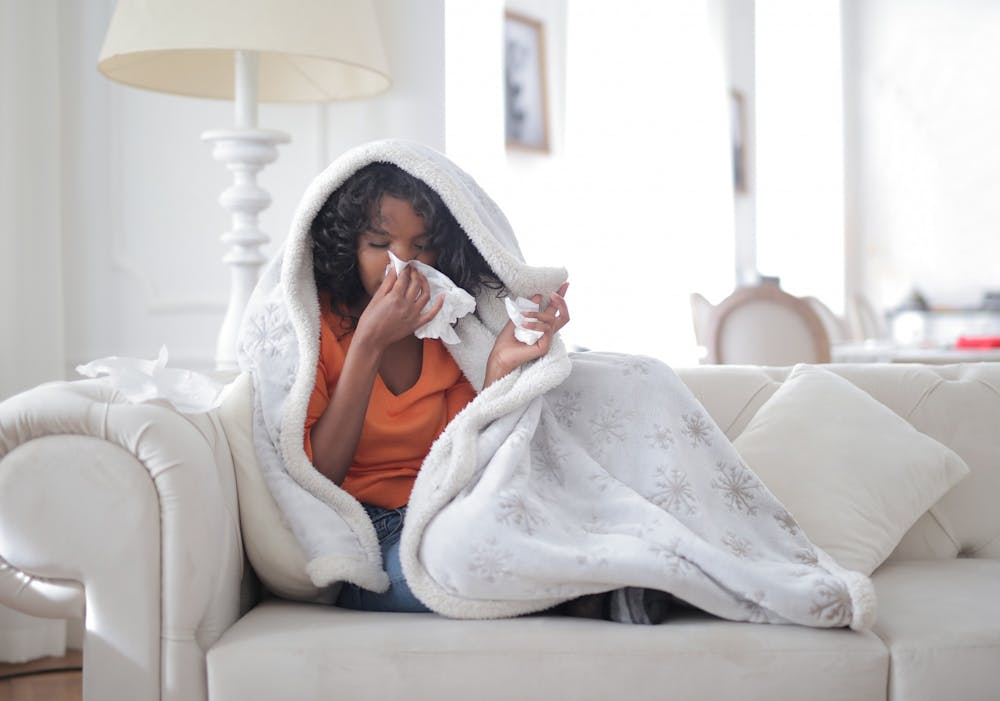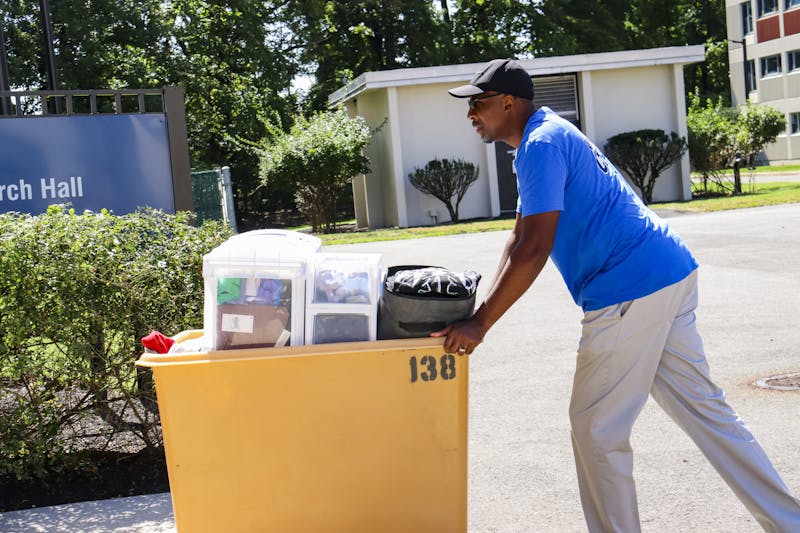Getting sick with a cold or upper respiratory tract infection can occur at any time during the year, but most commonly during the winter and spring. These types of illness are often caused by viruses which can weaken the immune system causing individuals to miss work and school. The CDC reports that most adults get sick with upper respiratory tract infections at least 2-3 times per year and children commonly acquire these illnesses at an alarmingly higher rate. Here is some helpful information about viral upper respiratory tract infections, such as the common cold and post nasal drip, that one may not be aware of.
What is the common cold?
The common cold is a viral infection of the nose and throat (upper respiratory tract). It’s usually harmless, although it may not feel that way. Many types of viruses can cause the common cold.
How does one get sick with the common cold?
The cold virus enters the body through the mouth, eyes or nose. The virus can spread through droplets in the air when someone who is sick coughs, sneezes or talks.
It is also spread with hand to hand contact with someone who is already infected or by sharing contaminated items such as utensils, towels, toys, or contact surfaces.
What factors increase chances of getting a cold?
having a weakened immune system or chronic illness such as diabetes or hypertension
time of year (fall/winter) can also factor in to ones susceptibility to colds, but colds can happen at any time
smoking cigarettes,vaping products, marijuana, tobacco use which has found to weaken the immune system
exposure to large crowds of people in areas such as schools, movie theaters or airplanes
What are things one should know about the common cold?
healthy adults can expect to have at least two or three colds annually
most people recover from a common cold in a week to 10 days
symptoms might last longer in people who smoke
discharge from the nose may become thicker and yellow or green colored as the cold runs its course
discolored mucus is not an indicator of of bacterial infection
there is no vaccine to protect against the common cold
antibiotics will not help to recover from a cold caused by a respiratory virus
How to prevent getting sick and ways to protect others from getting sick?
avoid close contact with others, such as hugging, kissing and shaking hands
stay at home while sick
move away from others when coughing or sneezing
cough or sneeze into a tissue then throw it away immediately in the garbage or, cough and sneeze into the bend of the arm or upper shirt sleeve covering the nose and mouth completely
wash hands with soap and water or use alcohol based hand sanitizer after coughing, sneezing or blowing one's nose
disinfect with household cleaner frequently touched surfaces and objects, such as tablets, computer keyboards, phones and doorknobs.
don’t share makeup, drinking glasses, utensils, eat off the same plate, especially when sick
What are common cold symptoms?
runny or stuffy nose
sore throat
cough
nasal and or chest congestion
slight body aches and or mild headache
sneezing
low grade fever
generally feeling unwell
What are possible complications of the common cold?
acute ear infections also known as otitis media
triggering asthma attack
sinus infection
other secondary infections like strep throat and pneumonia
Note: These possible complications require immediate evaluation and treatment by a medical provider
What is post nasal drip?
Post nasal drip occurs when excessive mucus is produced by the mucous membrane lining within the sinus cavities and nasal passages. The excess mucus builds up in the throat or back of the nose causing a constant dripping of mucus down the back of the throat
What are common causes of post nasal drip?
colds and flu
sinusitis
seasonal allergies
changes in the weather with cold temperatures or really dry air
deviated nasal septum
exposure to certain chemicals such as perfume, cleaning products, smoke or other irritants
What are symptoms of post nasal drip?
sore throat
cough
constant desire to clear throat
difficulty swallowing
nasal congestion
feeling of thick mucus in the back of the throat that is difficult to get out
What providers may recommend?
over the counter
nasal saline drop or nasal irrigation (Netty pot or Neil med nasal rinse) to help relieve nasal congestion and to rinse irritants from sinuses
nasal decongestant sprays (Flonase) or oral decongestant tablets (Medi phenyl)
oral expectorants (Mucinex) a medication to thin mucus
cough medicine (Robitussin), or antihistamines like (Claritin) for cough and nasal congestion
humidification or steam inhalation (with warm showers)
keep well hydrated to keep mucus thin and easy to bring up
Please Note that antibiotics are not usually helpful with treating viral post nasal drip, unless symptoms are related to a bacterial infection of the sinuses
Lifestyle modifications and home remedies
drink plenty of fluids
water, juice, clear both, or warm water with lemon
avoid caffeine and alcohol which can be dehydrating
eat chicken or vegetable soup
soup and other warm fluids can be soothing and can loosen congestion
make sure to get enough rest
if possible stay home from school/work to give time to recover, and reduce the chances of infecting others
adjust room temperature and humidity
keep room warm, but not overheated
if the air is dry consider using a cool mist humidifier or vaporizer to moisten the air
make sure to keep the humidifier clean to prevent mold and bacterial growth
sleep sitting up or with head elevated on 2 pillows to aid in making breathing easier and also to prevent mucus from collecting in the back of the throat
sooth throat with warm water gargles
consider adding a ¼ to ½ teaspoon of salt in 4-8 ounces of warm water for temporary sore or scratchy throat relief
What should one do if symptoms persist or worsen?
If symptoms persist or worsen please make an appointment to follow up with a private medical provider right away, or call Kean University Student Health Services (SHS) at (908) 737-4880 to be evaluated by one of our qualified medical providers. SHS is here to help in the pursuit of staying healthy during this cold and flu season.
References:
https://www.cdc.gov/features/rhinoviruses/index.html
https://my.clevelandclinic.org/health/diseases/12342-common-cold/management-and-treatment
https://www.webmd.com/allergies/postnasal-drip#1
https://www.health.harvard.edu/staying-healthy/treatments-for-post-nasal-drip
https://www.cdc.gov/antibiotic-use/community/for-patients/common-illnesses/colds.html
This article was written by Student Health Services.






